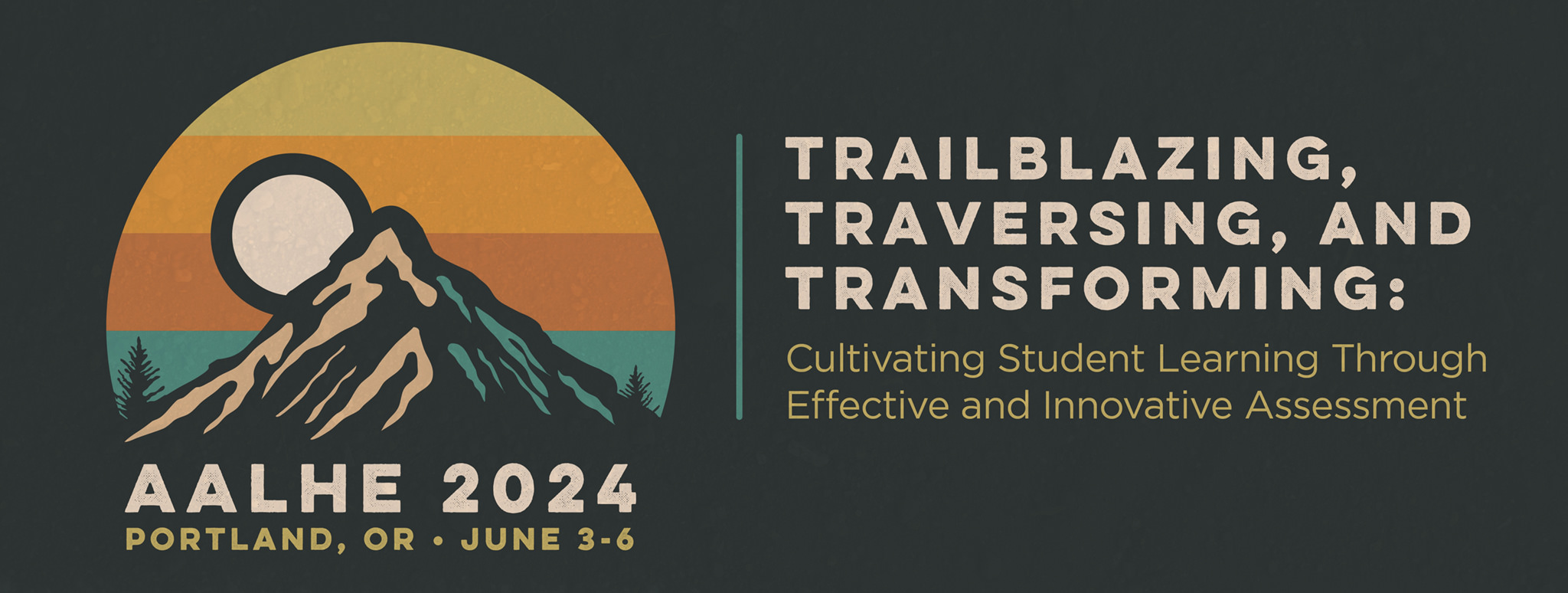
AALHE 2024 Keynote
Thinking with A.I. and the Future of Assessment
José Antonio Bowen, Ph.D., F.R.S.A.
The excitement (and panic) surrounding A.I. is shattering expectations around assessment (and everything else), while challenging us to build more future-proof and inclusive classrooms. AI is changing working and thinking: as jobs and the way humans do thinking tasks change, how will our curriculum respond? AI is also changing how we think about average. If AI can produce consistent "C" work than we need to update our policies around grading. AI is even changing creativity. Together, we will examine the skills and content that will matter most in this new age, why articulation of ‘quality’ is essential and how to lead productive campus conversations about responding to AI. Focusing on the tangible, attendees will also learn techniques to transform assignments and assessments to motivate and engage students by placing greater emphasis on the process and experience of learning.
José Antonio Bowen has won teaching awards at Stanford and Georgetown, was Dean at Miami and Southern Methodist University and President of Goucher College. He has written over 100 scholarly articles and has appeared as a musician with Stan Getz, Bobby McFerrin, and others. He is the author of ),Teaching Naked (2012, the winner of the Ness Award for Best Book on Higher Education), and Teaching Change: How to Develop Independent Thinkers using Relationships, Resilience and Reflection (2021). Stanford honored him as a Distinguished Alumni Scholar (2010) and he has presented keynotes and workshops at more than 300 campuses and conferences 46 states and 17 countries around the world. In 2018, he was awarded the Ernest L. Boyer Award (for significant contributions to American higher education) and he is now a senior fellow for the American Association of Colleges and Universities.
Past Keynote Speakers
Wednesday, June 6th, 2023
The Perfect Story: How to Tell Stories That Inform, Influence, and Inspire
Karen Eber
Karen Eber demonstrates how to scientifically hack the art of storytelling by leveraging the Five Factory Settings of the Brain and showing how to tell stories that inform, influence, and inspire.
Monday, June 6th, 2022
Strengthening Communities of Assessment by Centering Equity and Racial Justice
Dr. Tia Brown McNair, American Association of Colleges and Universities (AAC&U)
Tia Brown McNair will draw from multiple AAC&U-sponsored projects to highlight efforts that build institutional capacity to achieve shared goals for making excellence inclusive.
Wednesday, June 8th, 2022
Assessing Nuance: Including Voices of Student Populations that are Challenging to Quantify
Dr. Sonja Ardoin, Appalachian State University
Sonja Ardoin will discuss the nuances and complications of assessing the learning of the full campus community, centering on first-generation college students and students from poor and working-class background.
Monday, June 7th, 2021
Exemplars of Assessment in Higher Education
Dr. Jane Marie Souza, University of Rochester and Dr. Tara Rose, Louisiana State University
Jane Marie Souza and Tara Rose will discuss their edited compendium, Exemplars of Assessment in Higher Education: Diverse Approaches to Addressing Accreditation Standards
Tuesday, June 8th, 2021
People-Centered Intelligences
Dr. John Mayer, University of New Hampshire
A discussion with Dr. John D. Mayer, Ph.D., Professor of Psychology at the University of New Hampshire on key measures and their relations to school and workplace behavior.
Wednesday, June 9th, 2021
Clear, Simple, and Wrong
Dr. David Eubanks, Furman University and Dr. Kate Drezek McConnell, Association of American Colleges & Universities (AAC&U)
This session weaves together three recent studies of student learning to show how common assumptions about data summaries can lead us astray, and how to avoid that fate.
Monday, June 16th, 2020
Looking Back to Move Forward: Building Towards Equitable Assessment
Dr. Natasha Jankowski
This keynote takes time to project forward while looking back, building upon the growth of diverse approaches to assess student learning which have unfolded over the past ten years of AALHE supporting assessment professionals.
Wednesday, June 10, 2020
Diversity Makes All the Difference: Assessing Student Learning and Educational Outcomes in Higher Education Institutions
Dr. Keena Arbuthnot
In this keynote address, Dr. Arbuthnot will encourage the audience to think more broadly about how higher education institutions can ensure that they develop and utilize culturally responsive assessments.
Monday, June 10, 2019
Aligning Assessment Efforts for Impact and Success
Dr. Adrianna Kezar
Dr. Kezar will describe her research on how, and under what conditions, assessment can improve teaching and learning.
Wednesday, June 12, 2019
Weaving Assessment into the Institutional Fabric: The Benefits of Cross-functional Teams
Dr. Amelia Parnell
The session will provide examples of collaborative work at campuses across the United States and will conclude with considerations regarding the intersections of communication and leadership and how to sustain a culture of assessment in the years ahead.
|